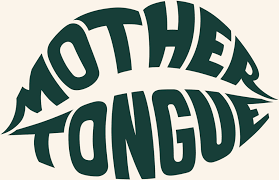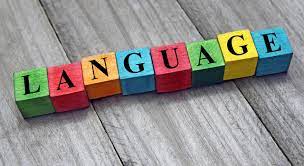
The mother tongue can successfully improve the quality of education in Nigeria if it s properly utilized. The other tongue is the native language or the first language. So, the individual born into that language will understand it better than a second language.
It is, therefore, expected that anything taught through that language can be understood better since it is the language the individual speaks mostly. A mother tongue is a language the child speaks from birth and it can have an incomparable impact on the life of the child.
Some Nigerian schools use the mother tongue to teach pupils. It is the same language being used by the fathers and mothers of those children. However, changing to another country may cause the child to learn another language and even understand it better than the previous mother tongue.
As a result, the impact of the mother tongue will be reduced. So, speaking the mother tongue continually can greatly impact the life of the child. If that mother tongue is used in teaching the child, he will be able to learn what is being taught more easily.
There is more to a mother tongue than just the language; it also concerns several other aspects, like the cultural, social, and personal identity of the child. The use of language can be complex. For example, a direct question can be translated as inquisitiveness in one culture and can be seen as an intrusion in another culture.
Effect of the mother tongue on education
The educational application of a mother tongue has to do with the use of the mother tongue in teaching a child in a school. The mother tongue can also be translated to a language that the child is most familiar with.
The mother tongue used in the class is the one used at home by parents and other family members, thereby making it very easy for the child to understand this language. There are instances where a child may be familiar with two languages, especially if his parents are from two different ethnic groups. If the languages of both parents are used repeatedly at home, then the child would have understood both by the time he reaches school age. So, the child can easily understand what is being taught in either language.
A professor from the University of Toronto, Professor Jim Cummins took his time to study how important mother tongue can be in the education of a child. He focused on the academic, literary, and mental development of a child and how these can be affected by a good knowledge of the mother tongue.
He stated that children with good knowledge of their mother tongues tend to develop a better understanding of the subject matter if it is taught using that language. He even went further by saying pupils that can understand multiple languages will have a better performance than other children.
While the use of the mother tongue may be very important, it is also good for the child to understand some other languages.
Bringing that to the Nigerian context, teaching the child in Hausa, Fulfude, Igbo or Yoruba can prompt a better understanding, especially if his parents use any other languages while communicating with him at home.
As a result of using the local language for teaching, the child will not have to think too far before he can understand what is being taught since he is familiar with every context of the said language. If the parents want to help their children, they should teach them how to speak their mother tongue fluently.
This way, it will not be difficult that for the child to understand what is being taught in school. It will help the child to become academically sound too.
How advantageous is the mother tongue in education
In this section, we will focus squarely on how your kids can benefit from the use of their mother tongue in teaching in schools. Some of the benefits are:
- It will be a lot easier for the child to learn some other languages if his mother tongue is used in teaching him in the classroom. Since he will be able to relate other languages being taught to his mother tongue
- The use of the mother tongue in schools can further improve the cultural, social, and personal development of the child a great deal
- It will also enable the child to further develop his literacy skills and critical thinking ability
- Children can easily adapt to the curriculum being followed in school if they are taught using their mother tongue. This will lead to a better educational performance of the kids
- In case the child has to use another language, the skills he has learned using the first language or mother tongue will not have to be re-taught.
- The school will even be more enjoyable to the kids if they are taught in the mother tongue. It will equally enable them to learn faster since they will feel comfortable with the language and the learning environment
- Children taught with the mother tongue will develop better self-esteem than children taught otherwise.
- There will be an increase in parent-child interaction especially when the parent has to assist the child with his or her home works.
- If the child has caused to translate what he has learned to another language, he can enjoy a higher socioeconomic status and even have access to higher earnings since he will be able to
Mother tongue can help to improve the intellectual development of a child. It helps with the cognitive development of the child too. Such children can enjoy better educational successes than other children taught using a different language.
There is no better way via which a child can get more connected to his or her culture. If he decides to learn a second language, it will not be difficult for him at all. The economic benefits of teaching a child using the mother tongue cannot be overemphasized. If the child plans to practice what he has been taught in school in his local community in the future, it will not be difficult for him to get established at all because he has a good knowledge of the local language.






















